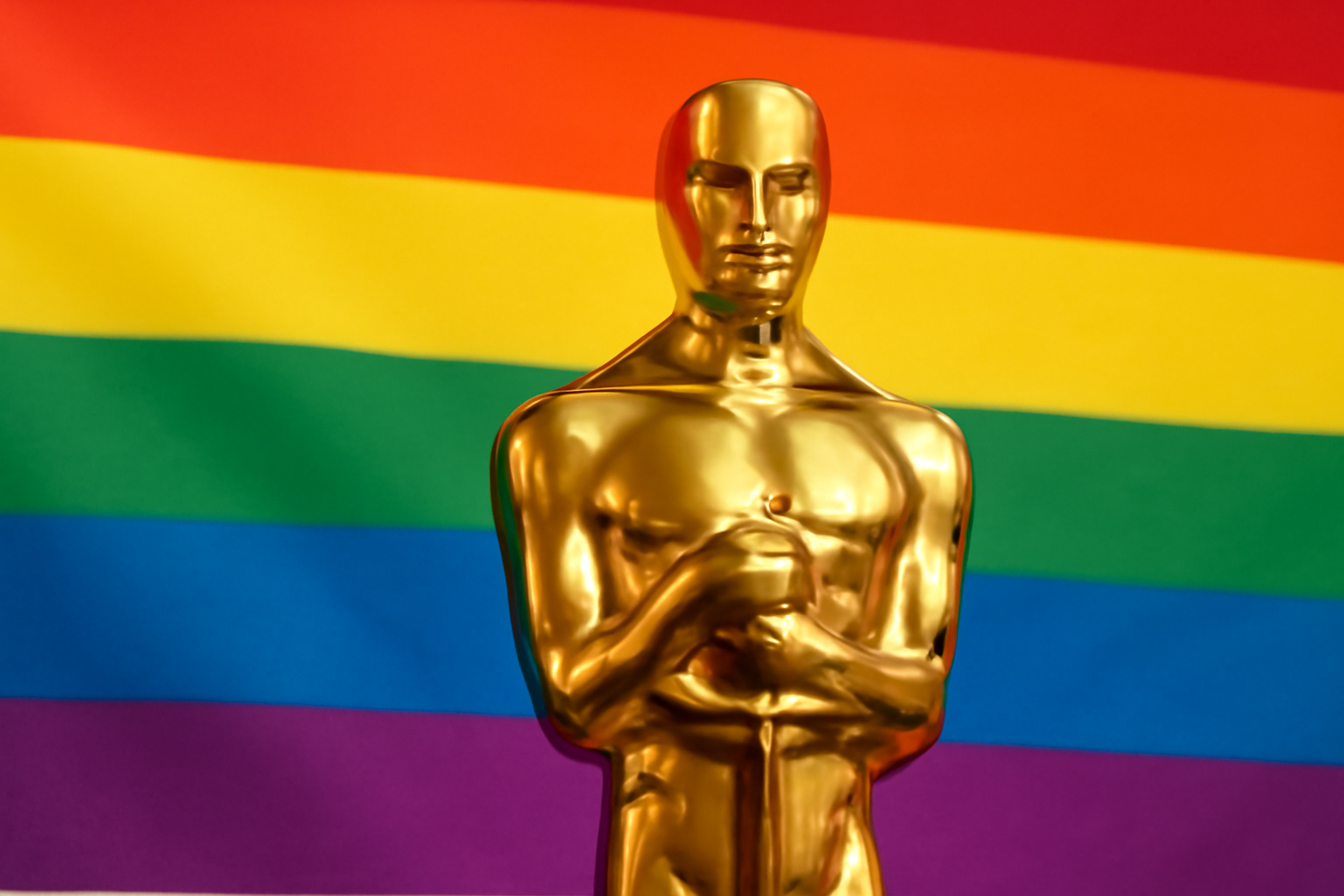
At the 78th Academy Awards ceremony in 2005, the groundbreaking LGBTQ+ film Brokeback Mountain made history by winning three Oscars from eight nominations. This was a pivotal moment for LGBTQ+ cinema at the Oscars, Hollywood's most glamorous night of the year. Prior to this, films celebrating the beauty and complexity of queer experiences were largely overlooked, with few exceptions.
Another landmark moment occurred in 2017 when Moonlight won Best Picture, becoming both the first LGBTQ+ film and the first with an all-Black main cast to win the prestigious award.
This year, Spanish star Gascón has been nominated in the Best Actress category at the Oscars, marking the first time a transgender actor has been nominated in an acting category, for her role in the musical Emilia Pérez. Unfortunately, this achievement has been overshadowed by past controversies involving resurfaced tweets from Gascón. She has since apologized for her comments.
Despite these notable exceptions, queer films and the LGBTQ+ people who create them are still often underrepresented at the Oscars, if not outright overlooked.
History of LGBTQ+ Oscar Winners
Over the last two decades, many straight actors have been awarded by the Academy for portraying LGBTQ+ roles. Sadly, queer actors have often found themselves on the outside looking in.
Several actors who either came out later in life or were posthumously labeled as queer have won Oscars. Marlon Brando, considered to have been bisexual, won two Best Actor Oscars during his career. He famously turned down his second Oscar in 1972 for The Godfather due to Hollywood's mistreatment of Native Americans. Later, he openly discussed having had "homosexual experiences."
In the 1990s, another queer actor, Kevin Spacey, won two Oscars while his sexuality was a closely guarded secret. He eventually came out as gay following accusations of sexual assault.
Until 2024, Ian McKellen was the only openly gay actor nominated for an acting Oscar. He was out as gay when he received both of his nominations. Speaking in 2016, he questioned whether the lack of openly gay men getting Oscar nominations was due to "prejudice or chance."
In 2024, Colman Domingo made history by becoming the second openly gay man to be nominated for an Oscar for his portrayal of a gay character in Rustin. He is up for another Best Actor Oscar this year for Sing Sing.
In the Best Actress category, Jodie Foster remains the only queer woman to have won for a leading role, with two wins for The Accused and The Silence of the Lambs. Lady Gaga was nominated in 2019 but did not win.
Queer actors have seen more success in the supporting categories. Joel Grey, John Gielgud, and Kevin Spacey have all won in these roles, although they were not out at the time of their wins. Angelina Jolie's bisexuality was public knowledge when she won for Girl, Interrupted.
Queer filmmakers and musicians have also been recognized. Elton John, Melissa Etheridge, Stephen Sondheim, and Howard Ashman have all won for Best Original Song. In 2016, Sam Smith's win led to controversy when they incorrectly claimed to be the first openly gay Oscar winner in their acceptance speech.
Queer Films at the Oscars
Queer films have tended to do well at the Oscars, but often only certain types. The Academy has often favored films where straight and cis actors play queer roles. This trend began with William Hurt's win for Kiss of the Spider Woman in 1985 and continued with Tom Hanks' win for Philadelphia in 1993.
Despite Philadelphia's success, it took another decade for queer films to gain mainstream acceptance at the Oscars. Nicole Kidman's win for The Hours and Brokeback Mountain's eight nominations in 2005 marked pivotal moments, despite the latter's snub for Best Picture.
Hollywood studios began to see the potential of Oscar success for certain types of queer films. Milk won several awards in 2008, including Best Original Screenplay for openly gay writer Dustin Lance Black. Since then, straight actors have frequently been nominated for portraying queer characters.
In 2017, Moonlight won Best Picture, highlighting a shift towards more diverse storytelling.
The Future of LGBTQ+ Representation
While the Academy has struggled with recognizing queer actors for playing queer roles, there are signs of change. This year, LGBTQ+ actress Cynthia Erivo is nominated for an award for her performance in Wicked. Colman Domingo is also up for Best Actor, and Emilia Pérez, a trans-led film, has been nominated in numerous categories.
The journey towards full representation and recognition is ongoing, but there is hope that the Oscars will continue to evolve and celebrate diverse stories and talent.
Related Posts
Triumphant Trans Woman Wins Legal Battle and Inspires Others to Stand Up for Their Rights
Breaking new ground: a landmark victory in transgender rights After battling in courtrooms and enduring endless challenges, Diana Portillo, a transgender woman, has secured a monumental victory in her decade-long fight against workplace discrimination. The result? Nearly $1 million awarded in a historic settlement. But this isn't just a win on paper—it represents a powerful precedent in combati [...]
Pride Month in Latin America: Protests and Demands for Equality
**Celebrating Pride and advocating LGBTQ+ rights in Latin America** Pride Month in Latin America was a lively mix where celebration met activism. Communities united, not just throwing a party but making a stand—demanding equality and pushing governments toward better protection and rights recognition. Throughout Latin America, pride events erupted in marches and cultural displays, each with a c [...]
Transgender Erasure Actions Implemented by National Park Service
```html Trump administration's impact on national park service and transgender recognition The Trump administration made notable moves in undermining transgender representation, which included directing agencies like National Park Service not include "T" and "Q" when they refered “LGBTQ” in any official communication. This move seems part a broader plan by this administration aimed at reducin [...]